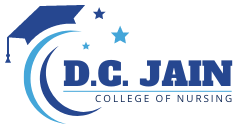
Exploring the Field of Medical Laboratory Technology
In the realm of modern healthcare, the field of medical laboratory technology (MLT) stands as a crucial pillar supporting diagnostic accuracy, patient care, and public health. Medical laboratory technicians (MLTs) and technologists are the unsung heroes behind the scenes, diligently analyzing biological specimens and providing vital information that aids in the detection, treatment, and prevention of diseases. At D.C. Jain College, we delve into the comprehensive world of medical laboratory technology, uncovering the essential roles, responsibilities, and significant contributions of these dedicated professionals.
Understanding Medical Laboratory Technology
Medical laboratory technology involves the scientific analysis of bodily fluids, tissues, and other biological samples. The information derived from these analyses helps physicians diagnose illnesses, monitor patient health, and determine the effectiveness of treatments. It encompasses a wide range of laboratory disciplines, each playing a crucial role in the healthcare continuum.
Core Responsibilities of Medical Laboratory Technicians (MLTs)
Medical laboratory technicians are integral members of the healthcare team, specializing in conducting routine laboratory tests and procedures. Their responsibilities include:
- Specimen Collection: Procuring blood, urine, and other samples for analysis.
- Laboratory Testing: Performing a variety of tests such as blood counts, chemical analyses, and microbiological cultures.
- Data Interpretation: Analyzing test results and preparing accurate reports for healthcare providers.
- Quality Control: Ensuring precision and reliability through meticulous calibration of equipment and adherence to protocols.
- Instrument Maintenance: Managing and maintaining laboratory instruments to guarantee optimal performance.
Keywords: Medical laboratory technicians, routine laboratory tests, specimen collection, data interpretation, quality control, instrument maintenance
The Role of Medical Laboratory Technologists (MLTs)
Medical laboratory technologists possess advanced training and expertise, allowing them to perform complex analyses and oversee laboratory operations. Their responsibilities include:
- Specialized Testing: Conducting advanced tests in areas such as clinical chemistry, hematology, immunology, and molecular diagnostics.
- Validation and Quality Assurance: Validating test methodologies, troubleshooting technical issues, and ensuring compliance with regulatory standards.
- Supervision and Leadership: Overseeing laboratory staff, managing workflow, and implementing quality assurance programs to maintain high standards of laboratory practice.
Keywords: Medical laboratory technologists, specialized testing, validation and quality assurance, supervision and leadership
Educational Pathways and Training
Becoming a medical laboratory technician or technologist typically requires formal education and specialized training. At D.C. Jain College, we offer rigorous programs that prepare students for successful careers in medical laboratory technology.
Curriculum Highlights
Our programs cover essential subjects such as:
- Clinical Pathology: Understanding disease processes and diagnostic techniques.
- Laboratory Techniques: Mastering laboratory procedures and instrumentation.
- Clinical Microbiology: Identifying microorganisms and conducting antimicrobial susceptibility testing.
- Quality Management: Implementing quality control measures to ensure accurate and reliable test results.
Keywords: Clinical pathology, laboratory techniques, clinical microbiology, quality management, medical laboratory education
Skills and Qualities of Medical Laboratory Professionals
Successful medical laboratory technicians and technologists possess a unique blend of technical skills, analytical abilities, and interpersonal qualities essential for effective performance in their roles.
Technical Skills
- Laboratory Proficiency: Profound knowledge of laboratory equipment, procedures, and techniques.
- Data Analysis: Ability to interpret complex data and identify abnormalities or trends.
- Instrumentation Knowledge: Understanding of sophisticated laboratory instruments and their operational principles.
Keywords: Laboratory proficiency, data analysis, instrumentation knowledge
Analytical Abilities
- Problem-Solving: Identifying and resolving technical issues to maintain accuracy and reliability of test results.
- Critical Thinking: Evaluating laboratory findings and recommending appropriate actions based on clinical indications.
Keywords: Problem-solving, critical thinking, technical troubleshooting
Interpersonal Qualities
- Communication Skills: Effectively conveying information to healthcare professionals and collaborating within interdisciplinary teams.
- Attention to Detail: Maintaining meticulous records, adhering to protocols, and ensuring precision in laboratory procedures.
- Ethical Standards: Upholding integrity, confidentiality, and professional ethics in all aspects of laboratory practice.
Keywords: Communication skills, attention to detail, ethical standards
Advancements in Medical Laboratory Technology
The field of medical laboratory technology continues to evolve with advancements in technology, automation, and diagnostic methodologies.
Technological Innovations
Emerging technologies such as automated testing platforms, molecular diagnostics, and artificial intelligence are revolutionizing laboratory practices, enhancing efficiency, and improving diagnostic accuracy.
Keywords: Technological innovations, automated testing platforms, molecular diagnostics, artificial intelligence
Career Opportunities
Graduates of medical laboratory technology programs can pursue diverse career paths in:
- Hospital Laboratories: Performing diagnostic testing and supporting patient care.
- Research Facilities: Contributing to medical research, drug development, and clinical trials.
- Public Health Agencies: Conducting epidemiological studies, disease surveillance, and outbreak investigations.
- Biotechnology Companies: Developing new diagnostic tools and therapeutic interventions.
Keywords: Career opportunities in medical laboratory technology, hospital laboratories, research facilities, public health agencies, biotechnology
Conclusion: The Vital Role of Medical Laboratory Professionals
Medical laboratory technicians and technologists play a critical role in healthcare delivery, providing essential diagnostic information that influences patient care decisions and improves health outcomes. At D.C. Jain College, we are committed to preparing competent and compassionate professionals in medical laboratory technology, equipped with the knowledge, skills, and dedication to excel in this dynamic field.
Keywords: Medical laboratory professionals, diagnostic information, healthcare delivery
Join us at D.C. Jain College and embark on a rewarding career in medical laboratory technology, where you can contribute to advancing medical science, enhancing patient care, and making a meaningful impact on global health. Explore the possibilities and discover your path to becoming a valued member of the healthcare team through the field of medical laboratory technology.

